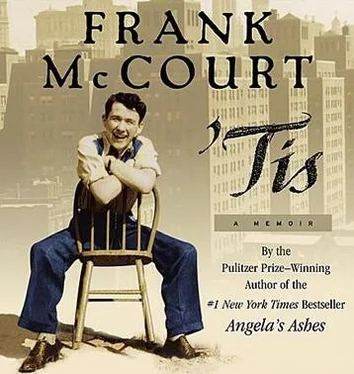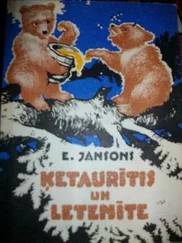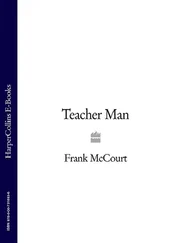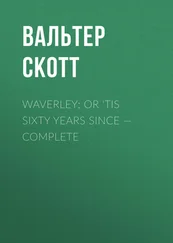Frank McCourt - 'Tis
Здесь есть возможность читать онлайн «Frank McCourt - 'Tis» весь текст электронной книги совершенно бесплатно (целиком полную версию без сокращений). В некоторых случаях можно слушать аудио, скачать через торрент в формате fb2 и присутствует краткое содержание. Жанр: Старинная литература, на английском языке. Описание произведения, (предисловие) а так же отзывы посетителей доступны на портале библиотеки ЛибКат.
- Название:'Tis
- Автор:
- Жанр:
- Год:неизвестен
- ISBN:нет данных
- Рейтинг книги:3 / 5. Голосов: 1
-
Избранное:Добавить в избранное
- Отзывы:
-
Ваша оценка:
- 60
- 1
- 2
- 3
- 4
- 5
'Tis: краткое содержание, описание и аннотация
Предлагаем к чтению аннотацию, описание, краткое содержание или предисловие (зависит от того, что написал сам автор книги «'Tis»). Если вы не нашли необходимую информацию о книге — напишите в комментариях, мы постараемся отыскать её.
'Tis — читать онлайн бесплатно полную книгу (весь текст) целиком
Ниже представлен текст книги, разбитый по страницам. Система сохранения места последней прочитанной страницы, позволяет с удобством читать онлайн бесплатно книгу «'Tis», без необходимости каждый раз заново искать на чём Вы остановились. Поставьте закладку, и сможете в любой момент перейти на страницу, на которой закончили чтение.
Интервал:
Закладка:
In the English classes they’re cowed by the midterm test with its multiple choice questions on spelling, vocabulary, grammar and reading comprehension. When I hand out the tests in Economic Citizenship there is muttering. There are hard words against Miss Mudd and how her ship should hit a rock and she should become fish food. I tell them, Do your best, and I’ll be reasonable with report card grades, but there is a coldness and resentment in the room as if I had betrayed them by forcing this test on them.
Miss Mudd saves me. While my classes are taking the midterm test I explore the closets at the back of the room and find them stuffed with old grammar books, newspapers, Regents exams and hundreds of pages of uncorrected student compositions going back to 1942. I’m about to dump everything into the trash till I start reading the old compositions. The boys back then yearned to fight, to avenge the deaths of brothers, friends, neighbors. One wrote, I’m gonna kill five Japs for every one they killed from my neighborhood. Another wrote, I don’t want to go in the army if they tell me kill Italians because I’m Italian. I could be killing my own cousins and I won’t fight unless they let me kill Germans or Japs. I’d prefer to kill Germans because I don’t want to go to the Pacific where there’s all kinds of jungles with bugs and snakes and crap like that.
The girls would wait. When Joey comes home me and him gonna get married and move to Jersey and get away from his crazy mother.
I pile the crumbling papers on my desk and begin reading to my classes. They sit up. There are familiar names. Hey, that was my father. He was wounded in Africa. Hey, that was my Uncle Sal that was killed in Guam.
While I read the essays aloud there are tears. Boys run from the room to the toilets and return red-eyed. Girls weep openly and console one another.
Dozens of Staten Island and Brooklyn families are named in these papers so brittle we worry they’ll fall apart. We want to save them and the only way is to copy them by hand, the hundreds still stacked in the closets.
No one objects. We are saving the immediate past of immediate families. Everyone has a pen and all through the rest of the term, April till the end of June, they decipher and write. Tears continue and there are outbursts. This is my father when he was fifteen. This is my aunt and she died when she was having a baby.
They are suddenly interested in compositions with the title “My Life,” and I want to say, See what you can learn about your fathers and uncles and aunts? Don’t you want to write about your lives for the next generation?
But I let it pass. I don’t want to interfere with a room so quiet Mr. Sorola has to investigate. He walks around the room, looks at what the class is doing and says nothing. I think he’s grateful for the silence.
In June I give everyone a passing grade, thankful I’ve survived my first months of teaching in a vocational high school, though I wonder what I would have done without the crumbling compositions.
I might have had to teach.
40
Since I long ago lost the key the door of my flat is always open and it doesn’t matter because there’s nothing to steal. Strangers begin to appear, Walter Anderson, an aging public relations man, Gordon Patterson, aspiring actor, Bill Galetly, man in search of the truth. They are homeless bar patrons sent by Malachy in the largeness of his heart.
Walter begins to steal from me. Good-bye, Walter.
Gordon smokes in bed and causes a fire but worse than that his girlfriend complains to me at Malachy’s bar about Gordon’s discomfort and my hostility. He, too, goes.
School is over and I have to work again, day by day, on piers and warehouse platforms. Every morning I shape up to replace men on vacation, men out sick, or when there’s a sudden rush of business and they need more help. When there’s no work I roam the docks and the streets of Greenwich Village. I can make my way to Fourth Avenue to browse in one bookshop after another and dream of the day I’ll come here and buy all the books I like. All I can afford now is cheap paperbacks and I’m content on my way home with my package of F. Scott Fitzgerald’s This Side of Paradise, D. H. Lawrence’s Sons and Lovers, Ernest Hemingway’s The Sun Also Rises, Herman Hesse’s Siddhartha, a weekend of reading. I’ll heat up a can of beans on my electric ring and boil water for tea and read in the light that comes from the flat below. I’ll start with Hemingway because I saw the film with Errol Flynn and Tyrone Power, everyone having a fine time of it in Paris and Pamplona, everyone drinking, going to bullfights, falling in love even if there was a sadness between Jake Barnes and Brett Ashley over his condition. It’s the way I’d like to live, roaming the world without a care, though I wouldn’t want to be Jake.
I take my books home and there is Bill Galetly. After Walter and Gordon I want no more interlopers but Bill is harder to dislodge and after a while I don’t mind if he stays. He has already installed himself by the time Malachy calls to say his friend, Bill, who has renounced the world, left his job as an executive in an advertising agency, divorced his wife, sold his clothes books records, needs shelter for a short time and surely I won’t mind.
Bill stands naked on a bathroom scale before a long mirror propped against the wall. On the floor are two flickering candles. He looks from the mirror to the scale and back again and again. He shakes his head and turns to me. Too much, he says. This too, too solid flesh. He points to his body, a collection of bones topped with a head of lank black hair and a bushy black beard flecked with gray. His eyes are blue wide staring. You’re Frank, eh? Hi. He steps from the scale, stands with his back to the mirror, twists to look at himself over his shoulder and tells himself, Thou art fat and pursy, Bill.
He asks me if I’ve ever read Hamlet and tells me he’s read it thirty times.
And I’ve read Finnegans Wake, that’s if anyone can read Finnegans Wake. I’ve spent seven years with the damn book and that’s why I’m here. Yeah, you’re wondering. Read Hamlet thirty times and you start talking to yourself. Read Finnegans Wake for seven years and you want to put your head under water. The thing to do with Finnegans Wake is to chant it. It might take you seven years but it’s something you’ll be able to tell your grandchildren. They’ll look up to you. What’s that you have there, beans?
Would you like some? I’m heating them on the ring there.
No, thanks. No beans for me. You have your beans and I’ll give you the message while you’re eating. I’m trying to reduce the body to bare necessity. The world is too much with me. Know what I mean? Too much flesh.
I don’t see it.
There you are. Through prayer, fasting and meditation I will drop below one hundred pounds, the despicable three digits. I want to be ninety-nine or nothing. Want. Did I say want? I shouldn’t say want. I shouldn’t say shouldn’t. You’re confused? Oh, have your beans. I’m trying to eliminate my ego but that action is ego itself. All action is ego. Are you following me? I’m not here with my mirror and scale for the good of my health.
From the next room he brings two books and tells me all my questions will be answered in Plato and the Gospel According to St. John. Excuse me, he says, I gotta take a leak.
He takes the key and goes naked to the hall toilet. He returns to stand on the scale to see how much he lost with the leak. Quarter pound, he says, and lets out a sigh of relief. He squats on the floor, faces the mirror again flanked by the candles, with Plato on his left, St. John on his right. He studies himself in the mirror and talks to me. Go ahead. Eat your beans. Books. That’s what you have there, eh?
Читать дальшеИнтервал:
Закладка:
Похожие книги на «'Tis»
Представляем Вашему вниманию похожие книги на «'Tis» списком для выбора. Мы отобрали схожую по названию и смыслу литературу в надежде предоставить читателям больше вариантов отыскать новые, интересные, ещё непрочитанные произведения.
Обсуждение, отзывы о книге «'Tis» и просто собственные мнения читателей. Оставьте ваши комментарии, напишите, что Вы думаете о произведении, его смысле или главных героях. Укажите что конкретно понравилось, а что нет, и почему Вы так считаете.












